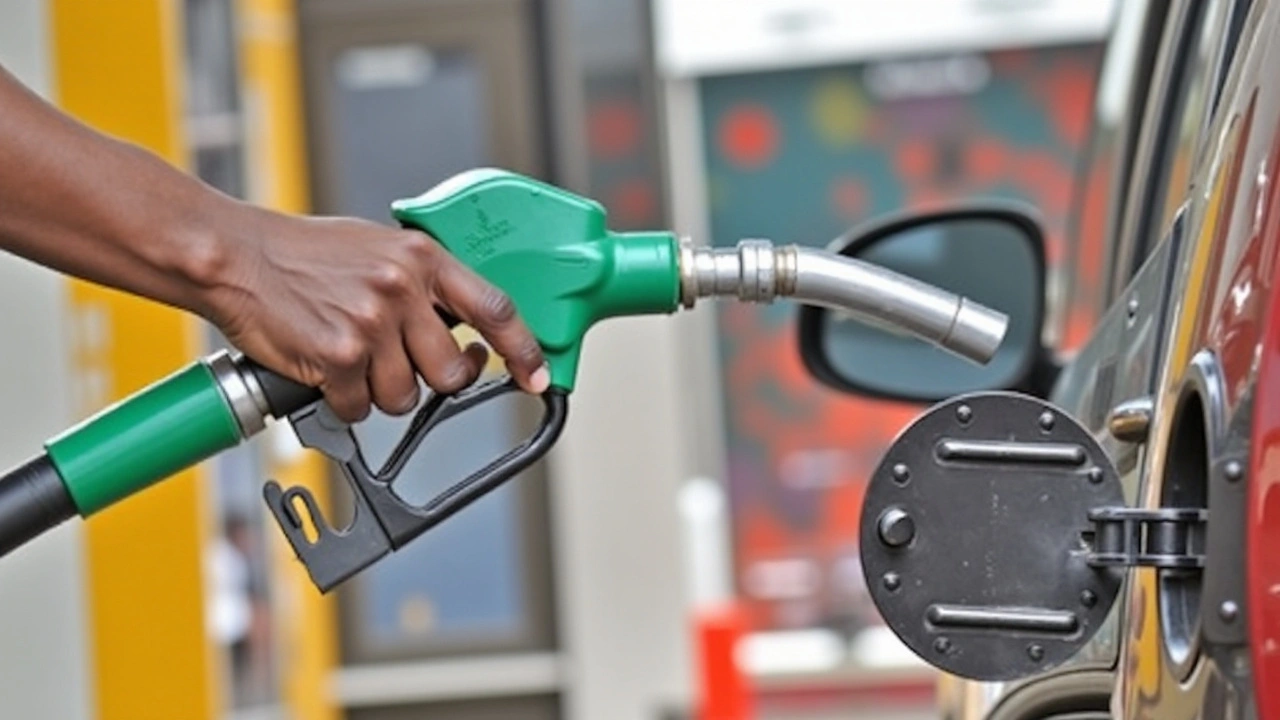Nigeria's Fuel Crisis: Unpacking the Factors Behind the Recent Price Surge
In a move that has sent shockwaves through Nigeria's economy, the Nigerian National Petroleum Company Limited (NNPCL) recently announced a significant increase in the pump price of Premium Motor Spirit (PMS), more commonly known as petrol. As of the latest update, Abuja and Lagos, two of the country's largest cities, are witnessing prices soar above the N1000 per litre mark — a historical high that underscores the growing complexities of Nigeria's energy sector. This drastic price hike follows a recent report by Daily Trust indicating a potential surge as NNPCL withdraws from its role as an intermediary in the Dangote Refinery fuel importation scheme.
Understanding the Background of the Price Hike
For months, industry insiders and experts warned of an impending rise in fuel costs due to the removal of subsidies — a development that has been a topic of intense debate in political and economic circles. Founded on the promise of reducing fiscal deficits and curbing government expenditure, subsidy removal was always a double-edged sword. While it intended to liberate funds for infrastructural development and social projects, it left the end consumers vulnerable to global price fluctuations.
The subsidy strategy, once a buffer against volatile crude prices and foreign exchange variances, had become unsustainable. According to NNPCL, the removal of this subsidy, in conjunction with the rising international crude oil prices, has resulted in a substantial escalation in the cost of importing and distributing petrol. Figures from the energy sector indicate that globally, crude oil prices have been steadily climbing, influenced by geopolitical dynamics and supply chain bottlenecks, which are compounded by Nigeria's waning refining capacity.
The Immediate Consequences for the Average Nigerian
With the NNPCL's revised pricing structure, the ripple effect on the average Nigerian citizen is palpable and profound. The average cost per litre has risen from a previous benchmark of N198 to a staggering N1,030 in Abuja, and from N885 to N998 in Lagos in just a mere span of days. For fuel-dependent industries and average motorists, this increase translates into a heightened cost of transportation and logistics, inevitably ballooning the cost of living for millions of Nigerians.
Scenes of long queues at petrol stations have become commonplace, with Nigerian motorists expressing both dismay and urgency to secure fuel before prices potentially surge further. Eyewitness accounts describe frustrating waits and rising tempers as consumers grapple with the sudden increase, questioning both the timing and the scale of the price spike.
Exploring Regional Disparities in Fuel Pricing
The recent pricing estimate from NNPC highlighted differentials based on geographical regions — Lagos was projected at N950 and eventually rose to N998 per litre. Similarly, Northern states like Sokoto and Kano were predicted to have pump prices of N992 and N999, respectively. Several factors contribute to these regional disparities including logistics costs, distance from importation hubs, and the concentration of distribution facilities.
Observers courier attention to the role regional infrastructures, such as transportation networks, play in pricing discrepancies. Areas with more robust distribution channels and closer proximity to importation points often enjoy lower rates compared to more remote locations, where costs are inevitably transferred onto the end consumers. The impact on rural economies, which rely heavily on transport-intensive industries like agriculture, can be significant and lasting.
Global Context: How Rising Crude Prices Affect Local Economies
Nigeria is not alone in facing fuel price challenges. Globally, the price of crude oil has substantial implications for economies dependent on oil imports. The post-pandemic recovery, along with geopolitical tensions in major oil-producing regions, has driven demand for oil, while supply has been hampered by various logistical and political barriers.
Internationally, crude prices have hovered on a steady upward trajectory due to a demand recovery that outpaces supply stabilisation. The Organisation of Petroleum Exporting Countries (OPEC) has periodically adjusted output quotas aiming for market stability, but the speed at which global economies are reopening has created unprecedented demand pressures.
The Broader Economic Impact and Future Outlook
The recent developments have placed the Nigerian economy at a pivotal juncture. Spiraling fuel costs seep into every economic sector, raising operational costs for businesses and squeezing household budgets. From the production of goods to the cost of basic necessities, the ripples of rising fuel costs are widespread and unrelenting.
Economists predict that these challenges, unless mitigated through effective policy management and strategic subsidy allocations, may stoke inflationary pressures in the coming months. The government faces a delicate balancing act — addressing energy accessibility and affordability issues while pursuing fiscal reforms aimed at long-term economic stability.
Government and Industry Reactions: Navigating the Crisis
The federal government, alongside NNPC, finds itself under increasing pressure to address not only the immediate fuel availability issue but also the long-term sustainability of energy pricing. In recent statements, officials have underscored the importance of diversifying the energy market and enhancing domestic refining capacities to hedge against such sharp fluctuations. Policy reforms aimed at bolstering local refineries and encouraging investment in alternative energy sources are touted as pivotal strategies for bridging the energy gap.
Meanwhile, stakeholders in the oil and gas industry advocate for transparent pricing mechanisms and better infrastructural investment to ensure more stability in the energy sector. As both the populace and political stakeholders wait cautiously, the nation collectively reflects on the core needs for an innovative energy strategy — one that not only provides for immediate relief but lays the groundwork for sustainable energy consumption and economic resilience in the future.
